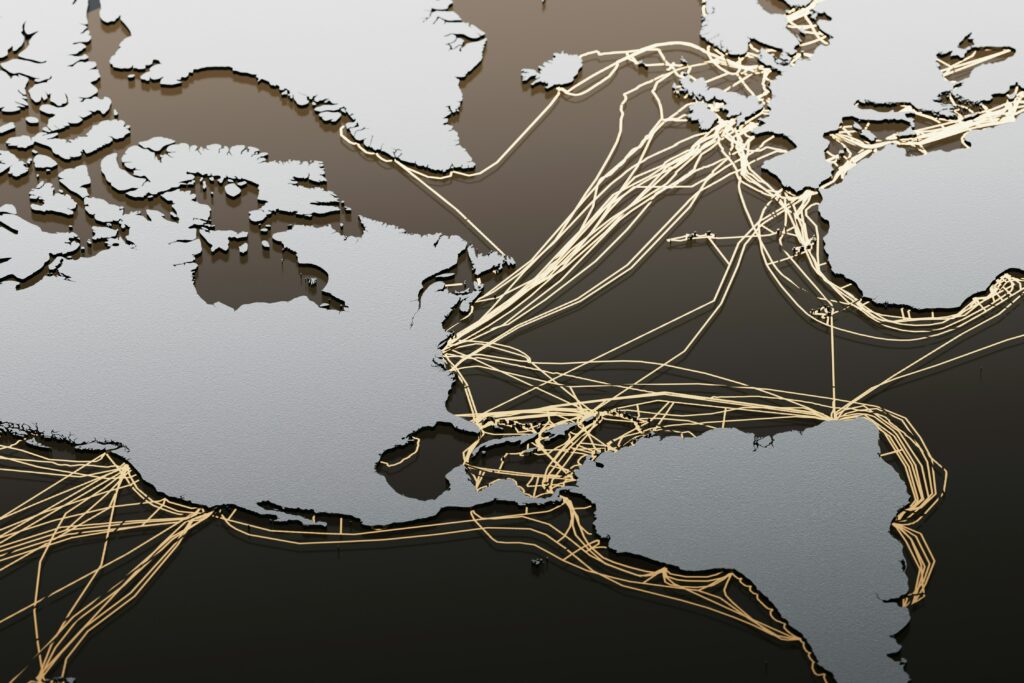
As the Pact for the Future and the annexed Global Digital Compact reach the final stages of negotiation, States are set to reaffirm their commitment to establish “resilient digital infrastructure that provides safe and secure network coverage to all areas” – allowing all communities to fully benefit from digital public goods. These new roadmaps pay little attention, however, on how best to protect the physical “backbone” that underpins any development of the digital economy and the provision of vital services for populations.
Achieving the SDGs through digital transformation critically depends on the fair development and resilience of certain transnational critical infrastructures, including subsea cables and satellite constellations. Just as governments have come to realize its importance, the “Public Core of the Internet” has emerged as a focal point of growing international security concerns amid emerging conflicts and escalating tensions. The global competition and diversity of operators involved in their deployment also place such assets as pawns of major geo-economic maneuvers, risking increased fragmentation.

Against this backdrop, existing norms and frameworks can hardly ensure an efficient protection and redundancy of infrastructures whose disruption is likely to produce cascading damages on a systemic scale. Spanning multiple jurisdictions and areas beyond sovereignty, the Public Core of the Internet requires new governance mechanisms for greater stakeholder accountability and preparedness in face of new risks.
This high-level event, aligned with the Paris Call’s principle 2, will convene executives from key infrastructure operators, along with senior representatives from States, international organizations, and civil society, to assess emerging security threats and global trade challenges impacting the Public Core of the Internet. The session will consider remaining governance gaps and innovative cooperation schemes to protect global connectivity from such risks and mitigate harms to populations in the event of disruptions. Participants will also be invited to discuss how to connect such efforts with the United Nations digital agenda, alongside pitfalls to avoid in doing so. The outcomes of the event will feed the ongoing efforts of the Paris Call’s community to establish a risk-based approach towards a protection scheme to ensure integrity and availability of transnational critical infrastructures.

H.E. Izumi Nakamitsu
United Nations Under-Secretary General and High Representatives for Disarmament Affairs

H.E. Doreen Bogdan-Martin
Secretary-General of the International Telecommunication Union

Lacina Koné
CEO of Smart Africa

Chris Painter
President of the Global Forum on Cyber Expertise

Dr. 'Bosun Tijani
Minister of Communications, Innovation and Digital Economy, Federal Republic of Nigeria

Nele Leosk
Ambassador for Digital Affairs of Estonia

David Roth
Director, International Public Policy, Amazon

Kaja Ciglic
Senior Director, Digital Diplomacy, Microsoft

Carla Montesi
Director, Green Deal and Digital Agenda, DG INTPA, European Commission

Charmaine Houvet
Senior Director, Africa, Cisco

Krisztian Meszaros
Acting Deputy Assistant Secretary General for Political Affairs and Security Policy, NATO

Omran Sharaf
Assistant Foreign Minister for Advanced Science and Technology, United Arab Emirates

Fekitamoeloa K. Utoikamanu
Minister of Information and Communications, Tonga

Ashutosh Chadha
Senior Director, UN Affairs and International Organisation, Microsoft
The event will be structured around two interactives roundtable discussions facilitated by a moderator. After short initial contributions by some of the participants to frame the issues to be discussed and challenges to be tackled, all participants are invited to take the floor on a voluntary basis to share ideas, inputs, and lead the discussion towards common understanding and solutions.
The event will conclude with a cocktail reception.
For any question or further inquiries, please contact: pablo.rice@parispeaceforum.lademo.be